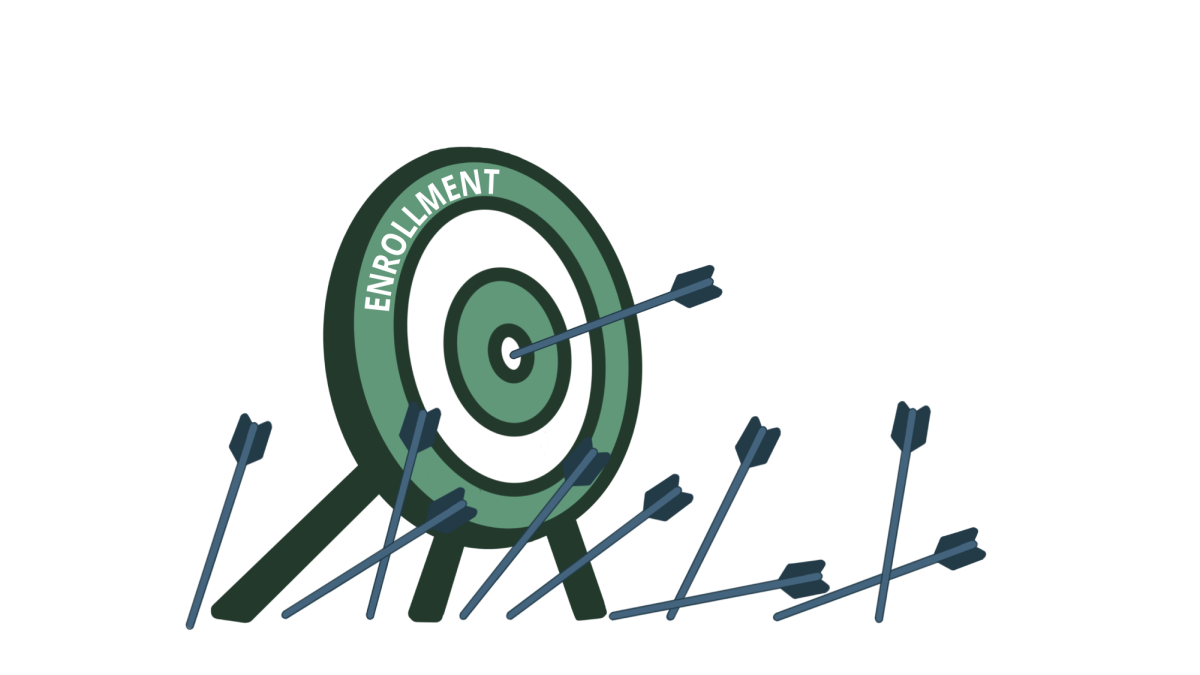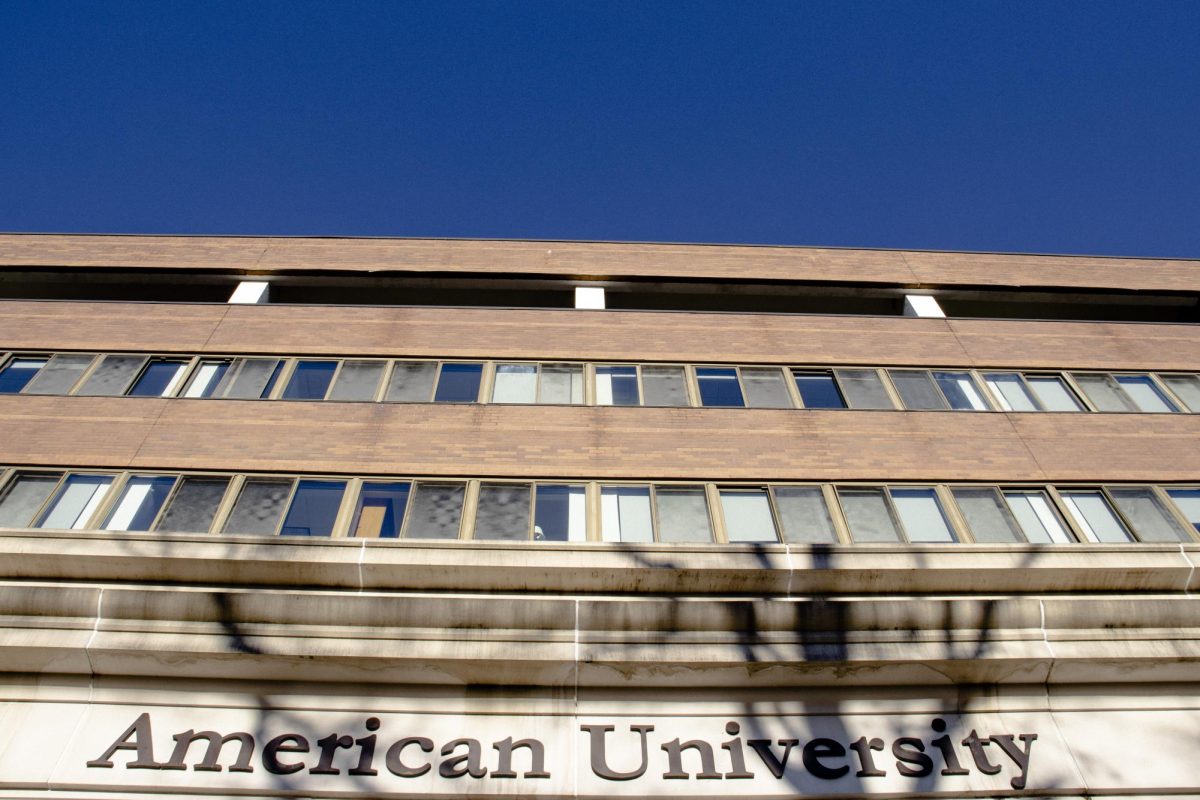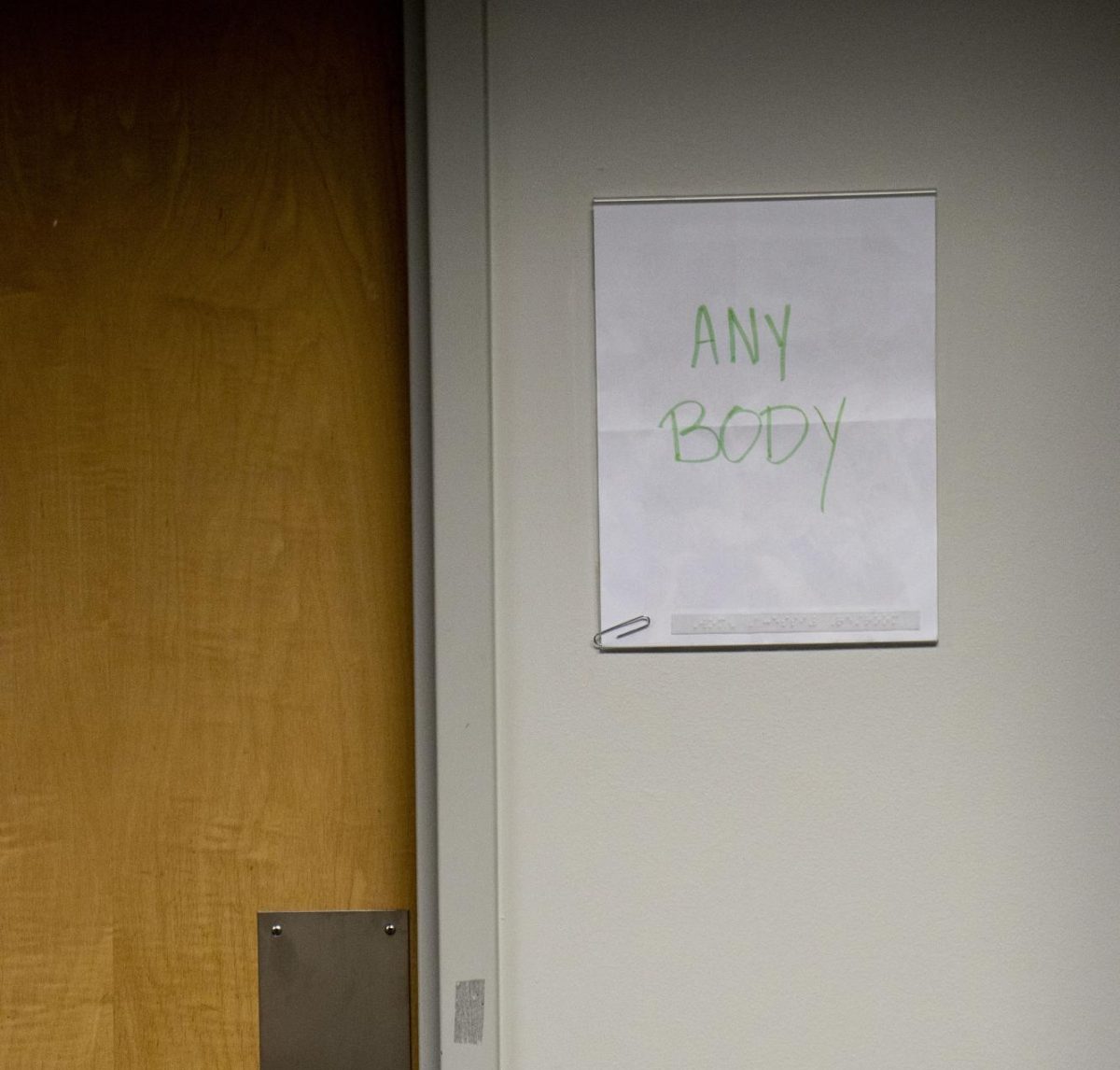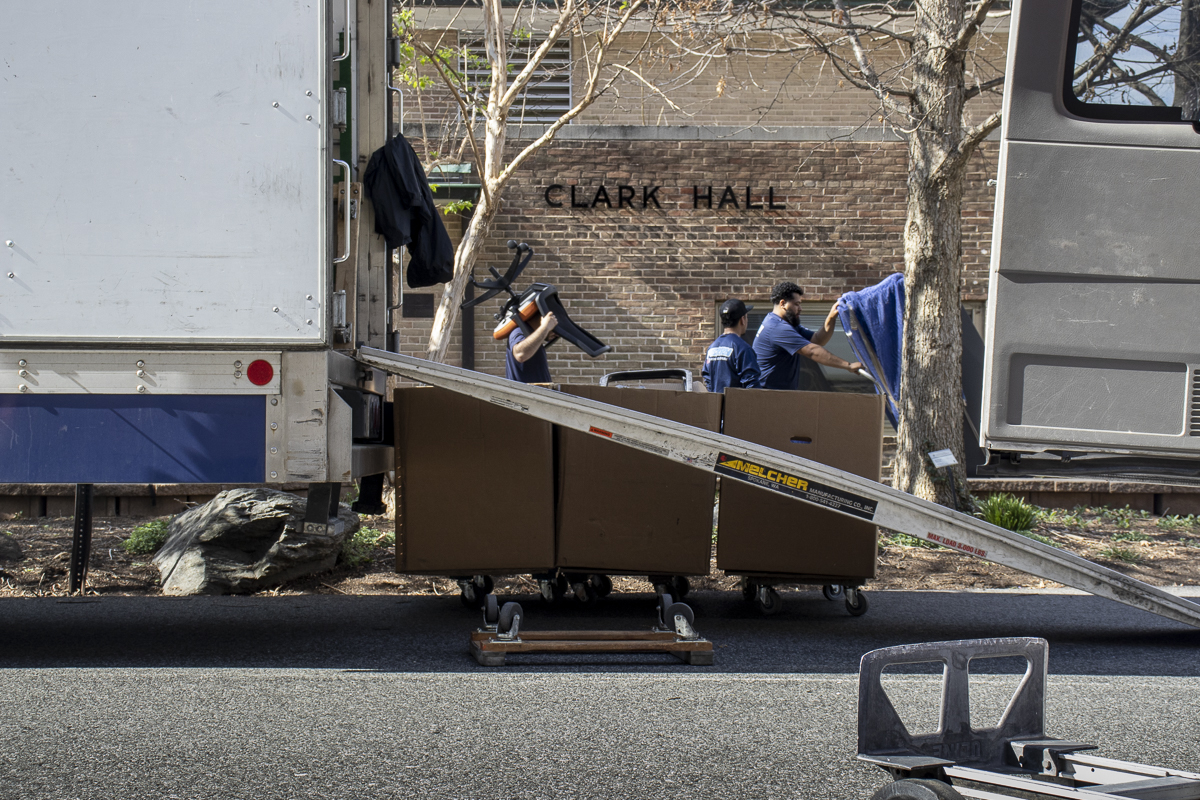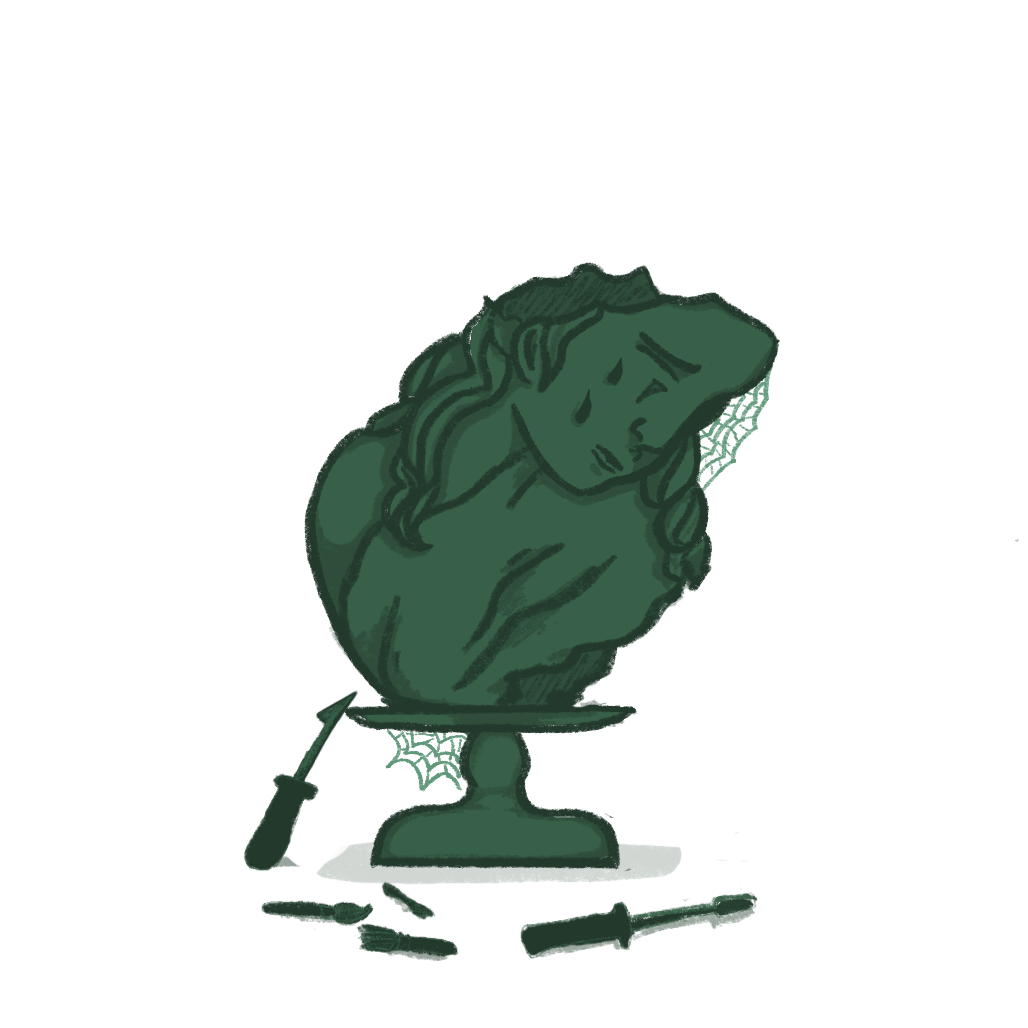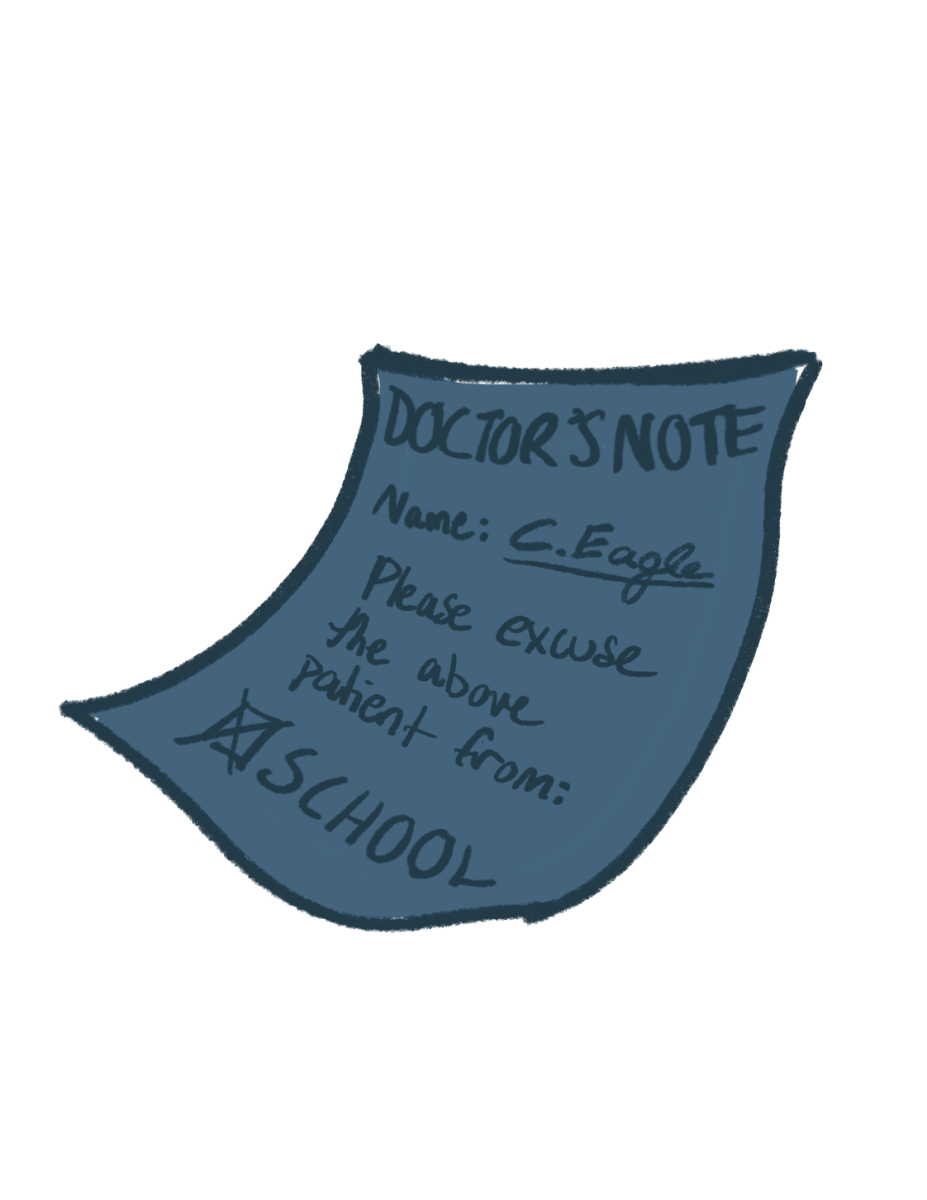American University hired Huron Consulting Group as part of a wider effort to address structural budget shortfalls at AU.
“Our expenses have outpaced our revenue for a series of years,” said Bronté Burleigh-Jones, AU’s chief financial officer, in a Dec. 15, 2023, community forum. “That’s not going to change. So we need to address that now. We are gonna take this year to do a series of assessments and analysis to help inform our return to the two-year 26/27 budget.”
Lower-than-expected graduate enrollment and undergraduate retention have driven post-COVID-19 deficits at AU, Burleigh-Jones said at the Dec. 15, 2023, forum.
The Huron contract
University administrators announced that AU hired Huron to evaluate the university’s staff workforce in a memo sent to select staff supervisors and university deans on Dec. 4, 2023.
After an evaluation, Huron will make recommendations to university administrators regarding how AU’s staff workforce can be restructured, according to the memo.
Huron is not contracted to do any academic restructuring, only a staff assessment, said Elizabeth Deal, assistant vice president for Community & Internal Communication at AU.
“The scope of work for American University is that we need a deep dive into what staff are spending their time on, and what they’re not,” Deal said in an interview with AWOL.
Huron’s recommendations are based on the Huron Administrative Activity Study, a survey sent to employees who spend at least 20% of their time on “administrative” or business operations work, according to the Strategic Workforce Assessment page on AU’s HR website. The survey asked participants to summarize how long they spend on each area of their work.
Although Huron was scheduled to provide recommendations to university administration in early March, administrators have not disclosed whether they’ve received Huron’s recommendations.
Huron’s recommendations are not final decisions, Deal said. University administrators will decide what to do with the recommendations.
Recent layoffs have occurred due to budget cuts in response to the FY24 deficit, said Sam Sadow, a representative of AU’s Staff Union. The layoffs are not a result of Huron’s recommendations, Deal said. Recent issues with the new payroll system, Workday, and layoffs at AU’s radio station, WAMU, have nothing to do with Huron’s recommendations, Deal said.
Huron does not comment on individual client work.
The announcement of AU’s contract with Huron quickly raised concerns among AU faculty. At a Dec. 6, 2023, Faculty Senate meeting, faculty members asked Vicky Wilkins, the acting provost, about Huron’s history at other universities, according to Faculty Senate meeting minutes.
Huron is known for its austerity-based recommendations at multiple colleges, including The New School, the University of Michigan-Flint and West Virginia University, Patrick Thaddeus Jackson, the vice president of AU’s American Association of University Professors Chapter, said.
Jackson said the news of Huron’s contract with AU led faculty members to begin sharing information about Huron’s work at other schools with each other.
He said there were significant concerns about layoffs and cuts made at other Huron-advised universities. Jackson said he referenced a statement from The New School AAUP Chapter that detailed the effects of Huron’s recommendations on staff and faculty.
“The more we learned, the more concerned we were,” Jackson said. “We’ve been pressing to try and get clarity about who made these decisions.”
Jackson said conversations with faculty and staff from other schools raised concerns that Huron’s recommendations could empower administrators to initiate layoffs and cuts.
At the Dec. 6, 2023, Faculty Senate meeting, Wilkins said that the administration was not aware of Huron’s previous work at universities, where academic restructuring led to layoffs.
University administrators sent the original Huron memo to staff supervisors. Only a few faculty members who supervise staff received the email. At the Dec. 6, 2023, Faculty Senate meeting, Wilkins said that because faculty weren’t involved in the survey, “it did not occur” to the administration to consider faculty as stakeholders in the process.

David Kaib, a representative of AU’s staff union and the assistant director of institutional research and assessment at AU, said he worries that Huron’s survey might lead to incomplete and inaccurate information because the survey lacks open-ended questions.
“There was no opportunity to talk about what you would think you should be spending your time on,” Kaib said.
Faculty members like Jackson said that only examining staff roles does not reflect the way AU operates.
“You can’t make decisions about staffing without affecting the faculty, and without affecting the conditions of their work,”
Jackson said. “And you can’t make decisions about faculty without affecting the conditions of the staff work. These are two sides of the same coin.”
In response to AU’s work with Huron, the AU Staff Union, AAUP and student groups have formed the “Huron Coalition” to address the lack of transparency surrounding the Huron contract, according to the coalition’s Feb. 22 demand letter.
The coalition is demanding a community-wide forum to discuss why Huron was hired and what its plans are for the future of the community, according to the coalition’s two demand letters to university administrators.
“Our feeling is that you can’t make things better if it’s a handful of top administrators in a room with a couple people from the outside,” Sadow said.
Jackson said the questions surrounding AU’s contract with Huron reflects a pattern of lack of communication between administration, faculty and staff that has worsened in recent years.
Jackson said faculty, staff and students are informed of major decisions at the end of the process rather than at the beginning. Faculty concerns about Huron are less about AU’s financial challenges and more about the process of finding solutions to balance AU’s budget, Jackson said.
“It is a very different thing if an administration official tells the faculty, staff and students, ‘These things are happening,’ versus, ‘We had a conversation and came to the resolution that these are the things that ought to happen,’” Jackson said.
John Bracht, the secretary and treasurer for the university’s AAUP Chapter, said that the recent handling of Huron shows a need for shared governance at AU with faculty and staff input.
While Bracht said there are potential challenges to shared governance, the system is critical to improving communication. There is a growing concern about the corporatization of universities like AU and top-down decision-making strategies, Bracht said.
“What we need to do is get back to how a university should operate,” Bracht said. “Shared governance needs to mirror, or be an accurate reflection of the complexity of our task in educating students.”
Assessments beyond Huron
Huron’s contract is only one of multiple assessments taking place to balance AU’s budget.
AU hired Helios HR to assess AU’s benefits programs, according to a Dec. 14, 2023, finance memo. AU is also in the early stages of faculty workforce and programmatic assessments, Wilkins said at a Dec. 15, 2023, forum.
Helios HR will recommend changes to AU’s benefits program based on interviews it conducts with community members and a representative survey of faculty and staff, according to the Dec. 14, 2023, memo. The benefits program currently includes health benefits, retirement benefits, tuition remission, as well as annual, sick and holiday leave options.
University administrators will make decisions based on Helios HR’s recommendations, similar to Huron’s, according to the memo.
Kaib, who helps conduct benefits surveys within the staff union, said the survey could be indicative of benefits cuts.
“If you’re asking people, which of these things are important, and which are not, I think we can sort of see where that might be going,” Kaib said.
At the Dec. 15, 2023, community forum, Wilkins said AU is in the early stages of a faculty workforce assessment and a programmatic assessment. The faculty workforce assessment would include a comprehensive review of faculty workload, taking into account both teaching and service loads. The
programmatic assessment would take a wider view of classes and programs at AU, Wilkins said.
“We’re going to be sticklers about lower enrolled classes,” Wilkins said. “We know that that’s a spot where good review and good practice can help us reduce some inefficiencies.”
A primary area of focus in the programmatic assessment will be AU’s graduate program portfolio. AU administrators will be using a new tool to assess the profit and loss of each graduate program, Wilkins said at the Dec. 15, 2023, forum.
“One of the areas that we are looking at is: how do we optimize our graduate program portfolio?” Wilkins said. “And how do we think about the programs we should be building, reinvigorating or suspending?”
Wilkins said the university is also looking at its course release policy, which exempts professors from teaching courses in certain circumstances, as well as AU’s tuition refund policy.
“We’re going to be sticklers about lower enrolled classes,” Wilkins said. “We know that that’s a spot where good review and good practice can help us reduce some inefficiencies.”
Budget prompts evaluations
This spring’s assessments have come in the wake of several yearly budget deficits.
About 80% of AU’s revenue came from tuition and fees in 2023 and 2024, according to AU’s FY23-24 budget report. Recent deficits have resulted from failure to hit enrollment targets — particularly in the graduate school — and undergraduate retention rates, Burleigh-Jones said at a community forum on Dec. 15, 2023. Burleigh-Jones said AU missed its graduate enrollment target nine out of the last 10 years.
“Our targets for graduate enrollments have been a place of dreams,” Wilkins said at the Dec. 15, 2023, community forum. “We know now we need to really think through realistically; In this market, at this moment, with this portfolio, what can our enrollment be? And you’ve watched us pull back.”
AU is sitting at a $33 million shortfall for FY24, according to a Feb. 2 budget update. AU plans to balance the shortfall by pulling from AU’s reserve fund, adjusting department and office budgets, and suspending several pieces of institutional spending, Burleigh-Jones said at the community forum on Dec. 15, 2023.
AU has a projected $33.6 million shortfall for FY25, Burleigh-Jones said at a community forum on Dec. 15, 2023. At the same forum, Burleigh-Jones said AU will not be transferring any money to reserves in FY25, reducing the shortfall to $25 million.
Jennifer Causey is a senior research associate at the National Student Clearinghouse, a higher education research nonprofit specializing in higher education research and data collection. She said even before
the COVID-19 pandemic, national college enrollment rates were declining, causing tighter budgets at many universities, particularly tuition-reliant institutions like AU. Across all higher-ed sectors, enrollment fell 2.3% in 2020 and 2.5% in 2021, according to a National Student Clearinghouse report. Retention rates also dropped.
Causey said there is an upcoming enrollment cliff in 2025. The 2008 recession caused birth rates to decrease; 18 years later, that decrease translates to lower enrollment, Causey said.
The Fall 2023 semester saw the first increase in enrollment rates since the pandemic started, according to the National Student Clearinghouse report. However, that doesn’t mean the market has recovered.
“It’s important to note that even though we’re starting to see growth, we’re still below 2019 levels,” Causey said. “We’re still below pre-pandemic levels.”
Thomas Merrill, the head of the AU Faculty Senate, said recent budget struggles, enrollment rates, and a downgraded US News & World Report ranking have concerned faculty.
“There’s a lot of anxiety in the community,” Merrill said, “We’re in the middle of a presidential transition, which makes everyone uncertain about the long term future of the university.”
Merrill said he worries that the university is too focused on managing its expenditures rather than improving its revenue streams.
“I think it’s a larger cultural thing about America that we often feel like we can manage our way out of problems, like, ‘So what if we just move a lot of boxes around the organizational chart?’” Merrill said.
The outcomes of this spring’s assessments have yet to be disclosed by university administration. Deal said AU’s new president will likely be tasked with implementing recommendations from this spring’s assessments.
“I think that’s gonna be the job of the next administration,” Deal said.
Jonathan Alger will officially become AU’s president on July 1, according to the university announcement sent on March 18.
Sadow said he believes changes might come sooner, letting current President Sylvia Burwell make unpopular decisions so Alger can start his presidency with a blank slate.
Sadow, who is working with the Huron Coalition through his position in AU’s staff union, said he worries AU is using this period of budget anxiety to justify austerity.
“When you look at audited financial statements and other financial documents that the university makes public, and they paint a picture of a school that is financially very healthy,” Sadow said. “This is not a question of resources. This is a question of priorities.”
At the community forum on Dec. 14, 2023, Burleigh-Jones said that AU is prepared to weather the changes in the higher education landscape.
“The sky is not falling,” Burleigh-Jones said.


